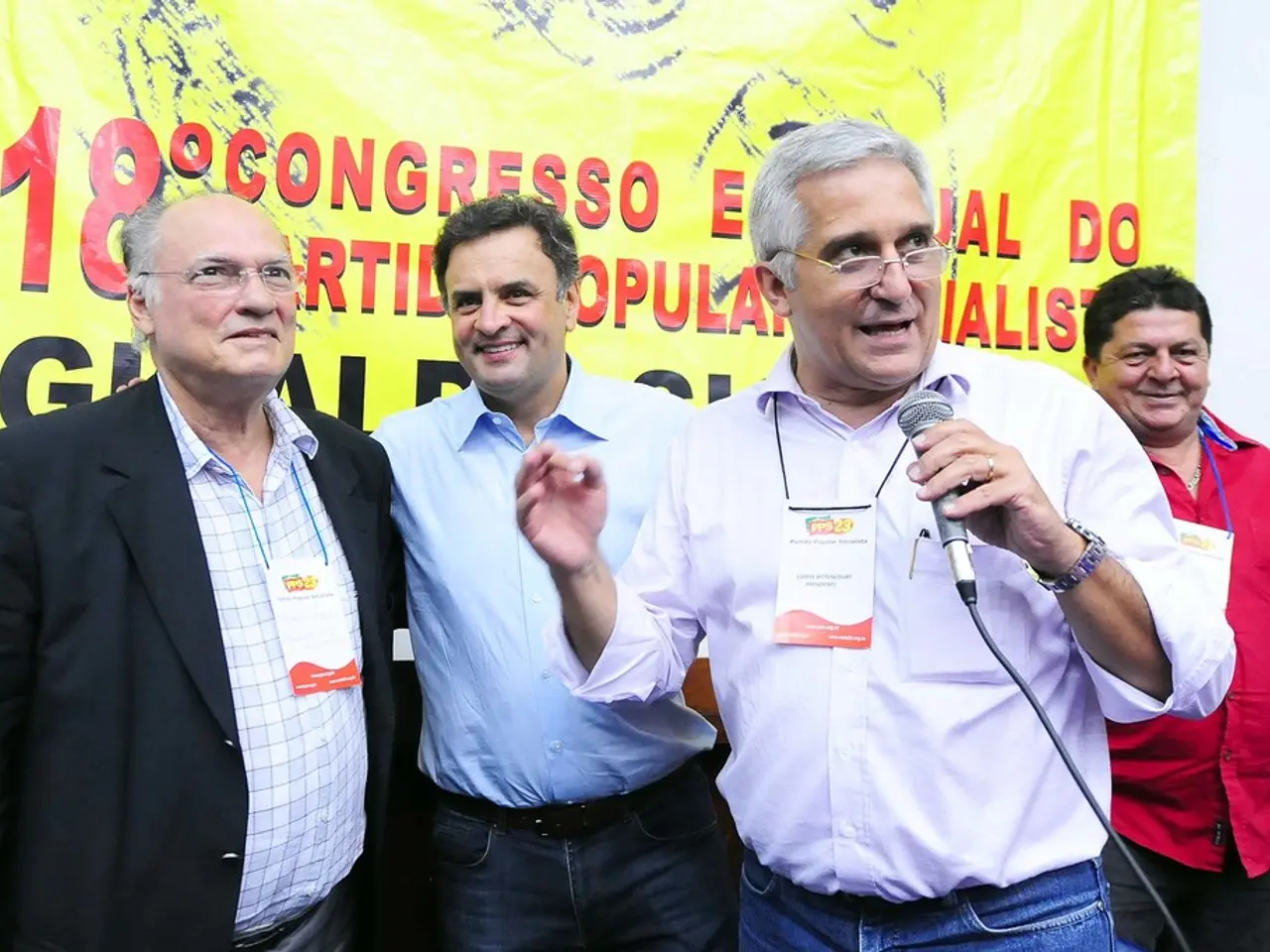FCC Commissioner Criticizes Paramount's Proposed 'Truth Verdict' for the Trump Administration
In a recent turn of events, the $8 billion merger between Paramount and Skydance has raised concerns among various quarters, with FCC Commissioner Anna Gomez leading the charge against the new conglomerate, now known as "new Paramount."
The merger, approved by a narrow 2-1 vote by the FCC, has been criticized by Gomez as a "cowardly capitulation" to political pressure. This accusation highlights concerns about regulatory acquiescence and political interference, with Gomez emphasizing that if the First Amendment is to mean anything, it must mean that no government, regardless of party, gets to decide what is true, who gets heard, or which voices are silenced.
The merger process was not without its share of legal and shareholder disputes. A lengthy battle revolved around the merger valuation and terms, with National Amusements, the controlling shareholder in Paramount, reportedly unhappy with the deal’s revised terms, especially over compensation and liabilities. This led to threats to consider alternative buyers and litigation focused on fiduciary responsibility, governance, and protecting minority shareholder interests. Eventually, revisions included concessions on shareholder compensation and editorial independence guarantees.
Critics worry that these shifts hint at increased political and corporate influence over news content, potential job cuts, cost-cutting measures, and a departure from traditional news values. The new ownership has emphasized transitioning into a "tech hybrid" model to compete in a challenging media environment, focusing on streaming and direct-to-consumer services, which adds further complexity to how content and news integrity will be managed.
The merger has also triggered concerns over editorial independence and corporate control of news media, notably CBS News. Reports have emerged about plans to install a "truth arbiter" or ombudsman role at CBS News to represent diverse ideological viewpoints, as part of efforts to address concerns over news distortion and ideological bias. This move follows controversial episodes such as the settlement of a “news distortion” lawsuit involving Donald Trump and the cancellation of a major CBS late-night show, which critics speculate were governmental or political pressures influencing the network's editorial decisions.
Gomez has been vocal about these concerns, pledging to call out corporate capitulation as a betrayal of journalistic independence and the public trust. She believes that the new company has agreed to government control over newsroom decisions and editorial judgments, a move that she finds alarming.
Trump, for his part, has stated that other late-night hosts, such as Jimmy Kimmel and Jimmy Fallon, are next. This statement has further fueled concerns about the erosion of free speech and the First Amendment.
In her statement, Gomez also described the new company as "born in shame" due to its perceived trading of First Amendment principles for profit. She urges citizens to hold the Administration accountable for its abuses and to stand up for the principles of journalistic independence and the First Amendment.
As the dust settles on this controversial merger, it remains to be seen how the new Paramount will navigate the complexities of editorial independence, political influence, and the public trust. The future of news media in America hangs in the balance.
[1] FCC Commissioner Anna Gomez's statement on the Paramount and Skydance merger. [2] Legal documents detailing the shareholder dispute surrounding the merger. [3] CBS News internal reports on the cancellation of Stephen Colbert's show and the installation of a "truth arbiter." [4] Interviews with former CBS employees on the impact of the merger on editorial independence and newsroom dynamics.
- FCC Commissioner Anna Gomez's critiques of the Paramount-Skydance merger extend beyond regulatory matters, encompassing concerns about political influence, editorial independence, and potential erosion of First Amendment principles.
- Donald Trump's recent statement suggesting that other late-night hosts might be next has reignited debates about free speech, the First Amendment, and the potential impact of governmental or political pressures on news content.
- As the new Paramount navigates its role in the media landscape, environmental, war-and-conflicts, policy-and-legislation, politics, general-news, and AI sectors may find their stories influenced by the merged company's focus on streaming, direct-to-consumer services, and a "tech hybrid" model.






